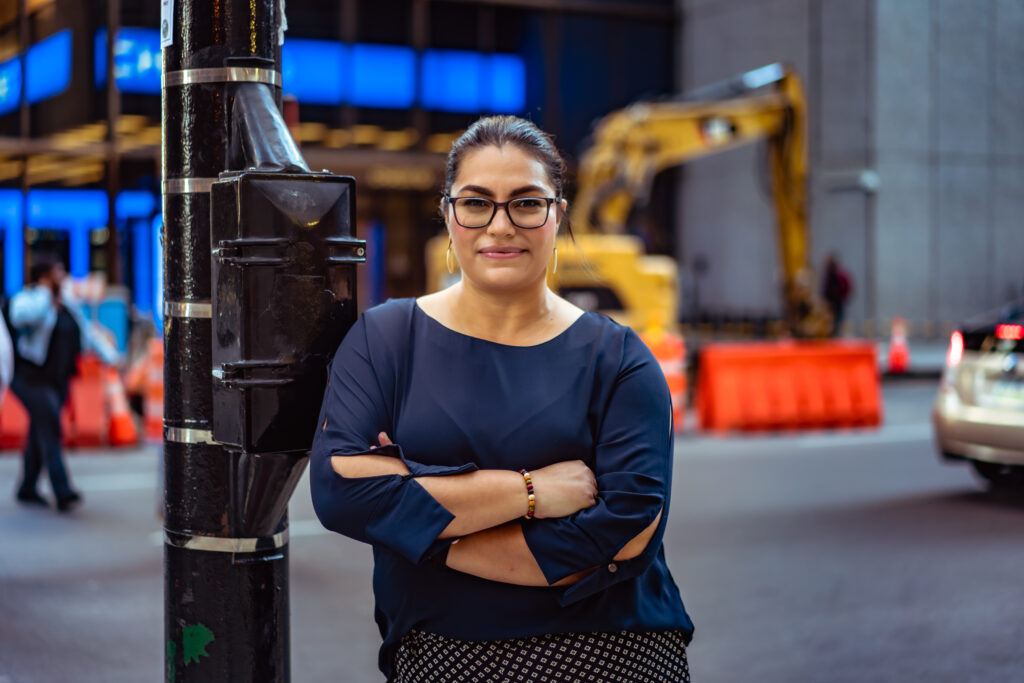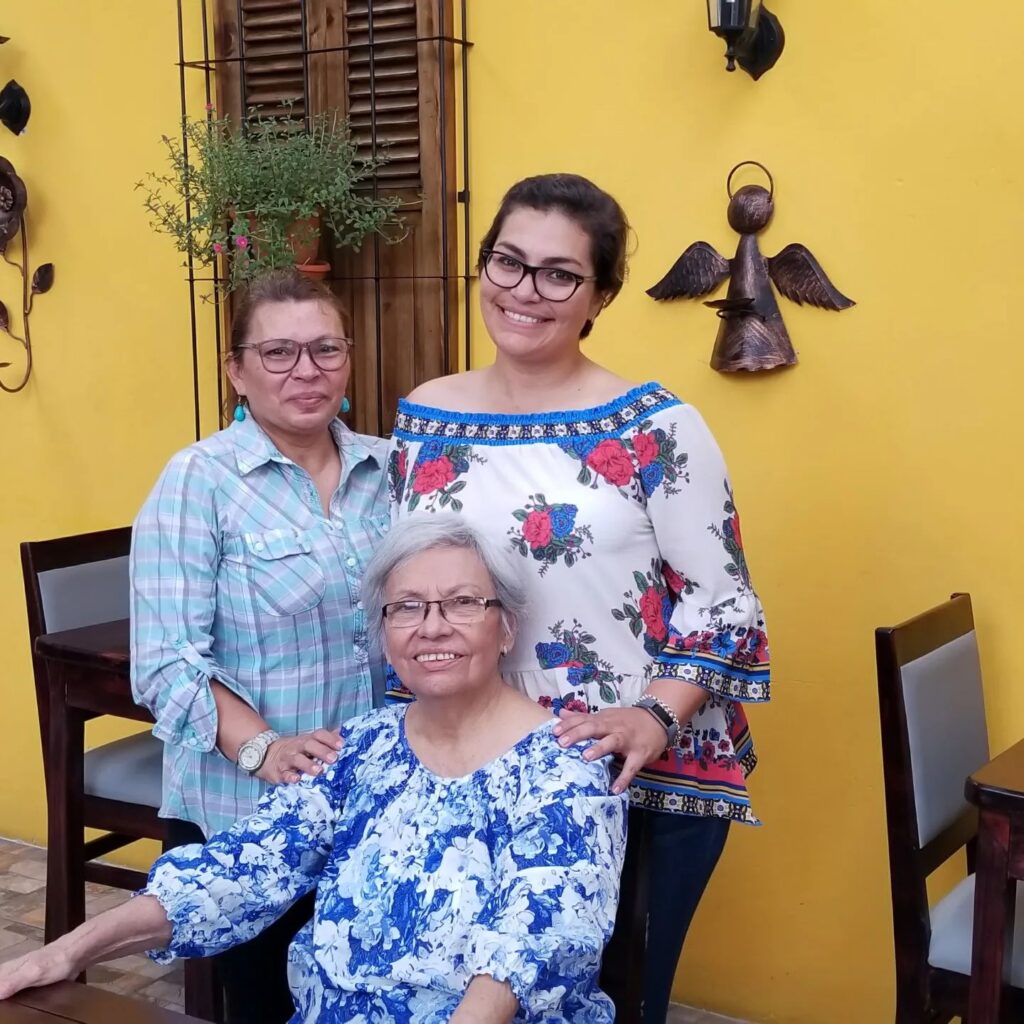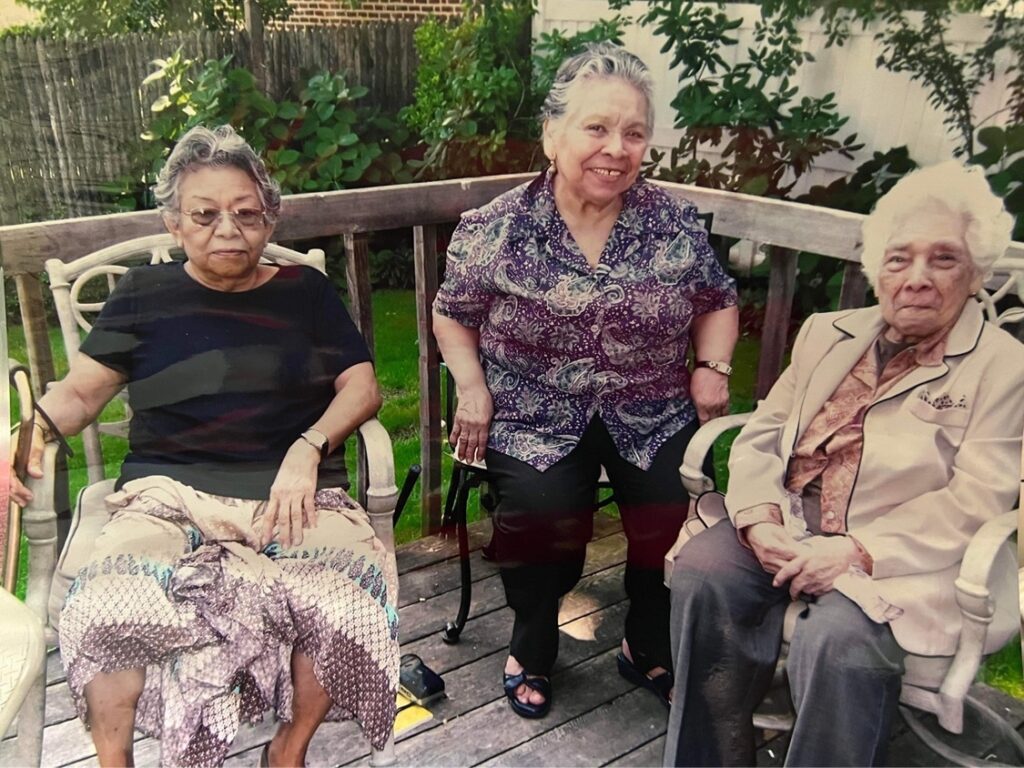
I was born in the US in the late 1950s. Both of my parents were born in Nicaragua, Central America. Even though I was born in the US, my grandparents raised me in Nicaragua until the age of eight. At that time, I returned to live with my parents in New York City. Making my first language Spanish. Growing up, we never spoke about menstruation, sex, or anything related to reproductive health at home. It was taboo. Schools did not teach sex education in those days either. I learned as I went along, hearing bits and pieces from my friends.
Even though I am educated and well-rounded, sex education was a subject that I did not know much about. I only knew the basics. You might be thinking this is sad – Perhaps– but this is the way Latino parents have raised their kids for many generations. I wish someone had taught me about bodily development, and the broad variety of topics related to sex and sexuality, to have gained the skills needed to manage my sexual health.
Even today, in Latino households we do not have parents talking enough about sex education with their children. There has been improvement, but there is a lot more we can do.
Unfortunately, cervical cancer in some cultures, including the Hispanic culture, is perceived to be a cancer of sexually promiscuous people. I believe this causes great stigma and shame. We can change this perception by first knowing the facts of cervical cancer, and educating others and ourselves. Educating the next generation properly is important. Teaching them about all the risks that exist, besides getting pregnant at an early age.
At the time of my diagnosis, I felt ashamed of having this type of cancer. I did not know too much about it nor did I know how I got cervical cancer. I had to educate myself so I could properly explain it to my family. My shame resilience came with time. You need to remember that a particular belief passed from generation to generation is hard to change and hard to let go.

Today, I am an advocate and an educator on cervical cancer. I educate women, especially Latinas, on the tools we have to prevent this type of cancer. Latinas are the demographic most diagnosed with cervical cancer. The two main reasons why are a lack of knowledge about the disease, and a lack of screening. However, we can take steps to change the fate of many.
Over the past 10 years, I have teamed up with my oncologist to provide free cervical cancer screenings for women in NYC who may not have medical insurance.
I was declared cancer free in 2009, and I use to visit my oncologist every three months for check-ups after that. In 2010 when I became an advocate, I use to come in and tell my doctor about all the work and advocacy I was doing in NYC.
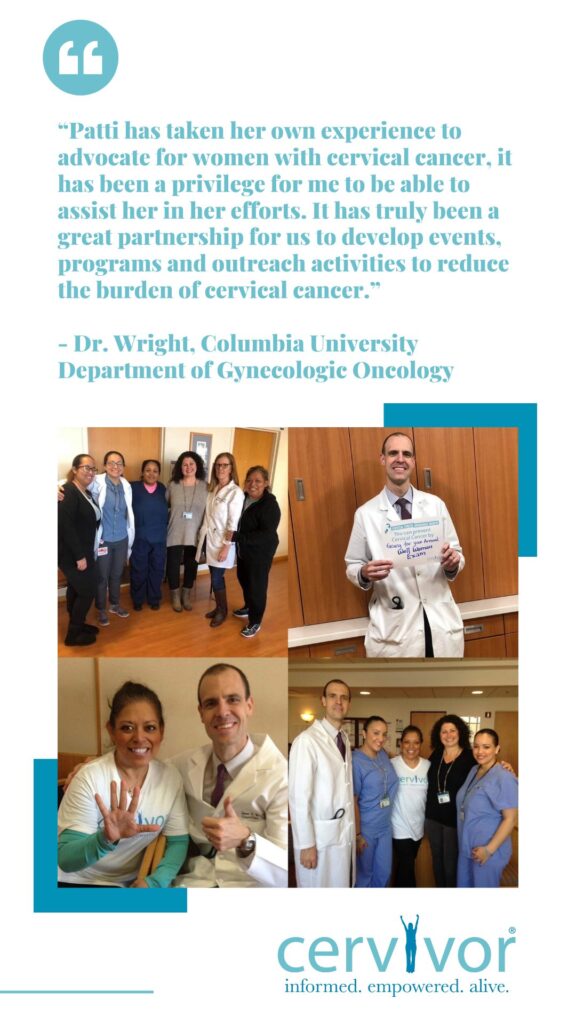
We developed an awesome patient/doctor relationship; he saw my enthusiasm and passion for the mission of eliminating cervical cancer. One day, during one of those visits, he said, “Patti I want to help you and the Cervivor organization with your mission. Let’s offer FREE screenings to uninsured women.” I looked at him, smiled, and the only thing that came out of my mouth was, “Are you serious?” He smiled back and said, “Yes, let’s make it happen.”
However, before we set up a date, he needed to put everything together. He needed to make sure that the lab was on the same page to not charge patients for processing the Pap/HPV test. He also needed to gather medical staff to come in on their day off, and donate their time.
This was amazing. I could not have asked for a better offer. On May 19, 2012, we held our first FREE screening event. It was a huge success. We have been offering this program annually since that first day and this year marks our 10-year anniversary.
We have also collaborated with other departments within the hospital, and for the past four years, in addition to cervical cancer screenings, we have offered FREE mammograms and FREE colon cancer screenings for uninsured men and women in the community.
Dr. Jason Wright and his staff at the Division of Gynecologic Oncology at Columbia University/NY Presbyterian Hospital are committed to this mission. Dr. Wright has always been supportive to the Cervivor organization and my advocacy work. I am so thankful to him and his staff for putting these events together. Because of them, hundreds of women have been screened throughout the years, and many lives have been saved.
Patient advocates and their oncologists can create a partnership together to reach more women in the community, and offer education, screenings, support, or mentorship to women that need these services.
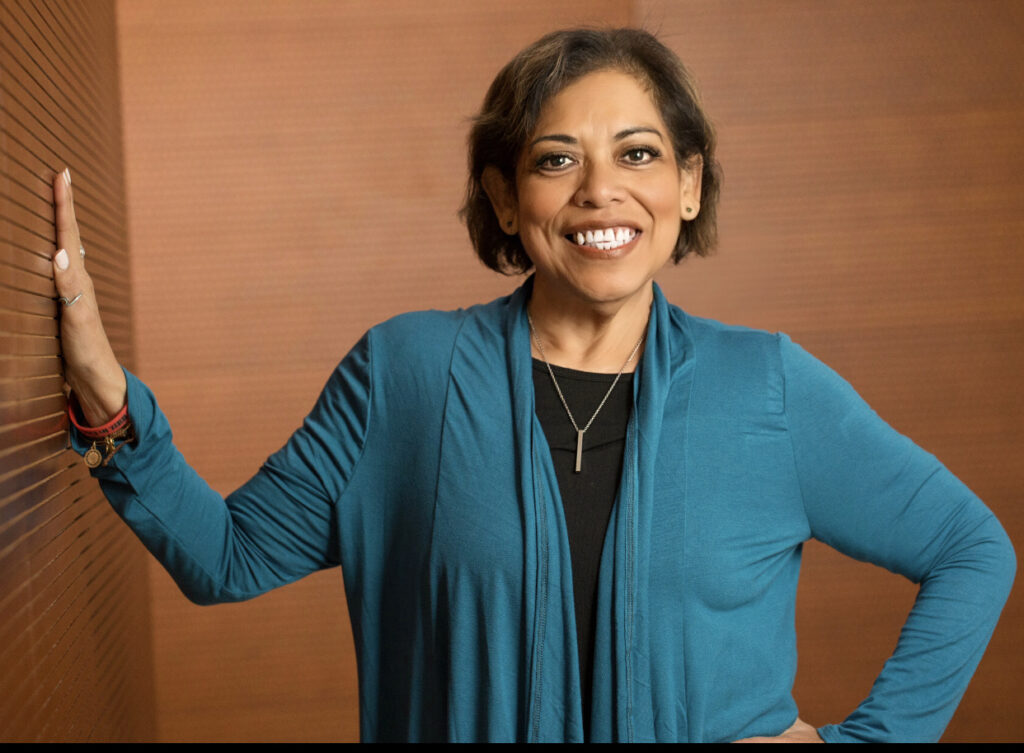
Patti Murillo-Casa, Cervivor Wellness Instructor
Cervivor is grateful to Patti for bringing her passion and talents for wellness and cancer prevention to our mission. She is a vital part of what makes us #CervivorStrong. Thank you, Patti!
